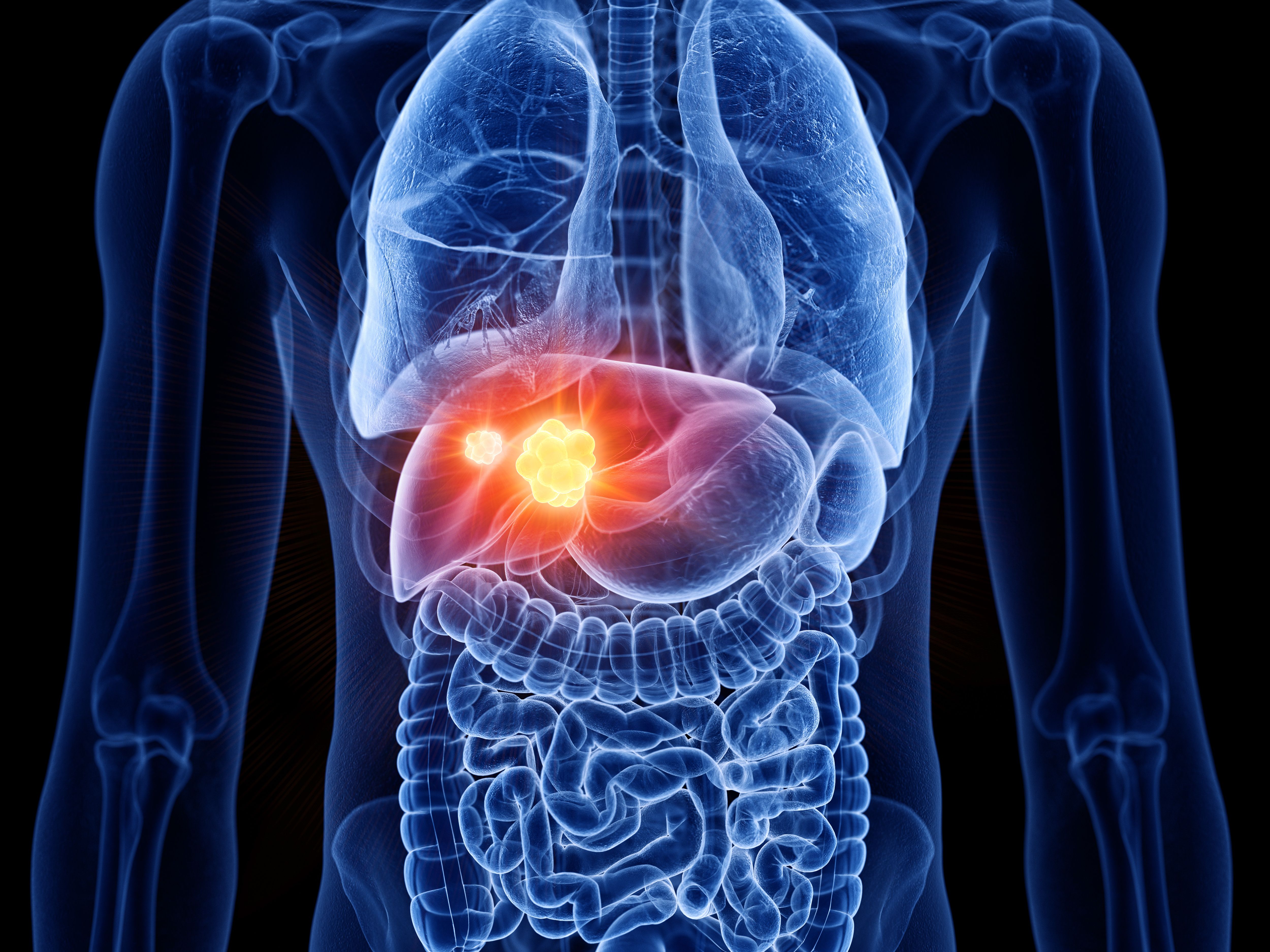- Center on Health Equity & Access
- Clinical
- Health Care Cost
- Health Care Delivery
- Insurance
- Policy
- Technology
- Value-Based Care
Nivolumab With Ipilimumab Approved by FDA for Use in Hepatocellular Carcinoma
The combination therapy can be used as first-line treatment for unresectable or metastatic forms of the cancer.
The FDA approved the combination of nivolumab (Opdivo; Bristol Myers Squibb Company) with ipilimumab (Yervoy; Bristol Myers Squibb Company) on April 11 to provide a new method of treatment for hepatocellular carcinoma (HCC), specifically in its unresectable or metastatic forms.1
HCC is the most common type of liver cancer. It is a serious cancer for adults in the US, being the cause of death for approximately 12,000 patients per year in the country; those with chronic liver diseases are most susceptible to the cancer.2 Symptoms of the cancer can include a feeling of fullness under your ribs on either side of your body, yellowing of eyes and skin, unexplained weight loss, and swollen stomach. The standard of care for liver cancer includes surgery, ablation therapy, radiation therapy, immunotherapy, and embolization, which stops blood flow to the tumor.3 Nivolumab/ipilimumab is an immunotherapy that helps the immune system target cancer cells and is administered intravenously.
This approval was based on the results of the CHECKMATE-9DW trial (NCT04039607), which were presented at the 2024 American Society of Clinical Oncology Annual Meeting.4 The aim of the study was to test nivolumab/ipilimumab compared with either sorafenib or lenvatinib, which are standards of care for HCC. There were 668 patients who were enrolled in the study who were randomly assigned to either receive 1-mg/kg nivolumab plus 3-mg/kg ipilimumab with 480-mg nivolumab every 4 weeks for up to 2 years or to receive 400 mg sorafenib trice daily or 8-mg or 12-mg lenvatinib once per day.
Nivolumab with ipilimumab can be used to treat a common form of liver cancer, hepatocellular carcinoma. | Image credit: Sebastian Kaulitzki - stock.adobe.com

The researchers conducting the trial found that the median overall survival (OS) of the patients taking nivolumab/ipilimumab improved compared with those who used lenvatinib or sorafenib. Those using nivolumab/ipilimumab had an OS of 38% over a 36-month follow-up compared with 24% in the other 2 groups in that same period of time. The objective response rate was also higher in those using nivolumab/ipilimumab compared with the other 2 groups (36.1% vs 13.2%), with the complete response rate being 7% in those taking nivolumab/ipilimumab compared with 2% in those taking either lenvatinib or sorafenib. There was a median duration of response of 30.4 months with nivolumab/ipilimumab compared with 12.9 months in the other treatments. Progression-free survival was similar between the 2 groups (9.1 vs 9.2 months).
The medication was well tolerated, with the majority of adverse events being grade 1 or 2. However, treatment-related adverse events led to the discontinuation of the treatment in 18% of the patients assigned to the treatment grojup compared with 10% in those assigned to other groups. The most common adverse events reported were diarrhea, pruritus, rash, and fatigue.
The FDA recommends a dosage of 1 mg/kg nivolumab with ipilimumab 3 mg/kg intravenously every 3 weeks for 4 or less doses before switching to nivolumab 240 mg intravenous for every 2 weeks or nivolumab 480 mg intravenously every 4 weeks.
References
- FDA approves nivolumab with ipilimumab for unresectable or metastatic hepatocellular carcinoma. News release. FDA; April 11, 2025. Accessed April 11, 2025. https://www.fda.gov/drugs/resources-information-approved-drugs/fda-approves-nivolumab-ipilimumab-unresectable-or-metastatic-hepatocellular-carcinoma
- Mayo Clinic Staff. Liver cancer. Mayo Clinic. April 28, 2023. Accessed April 11, 2025. https://www.mayoclinic.org/diseases-conditions/hepatocellular-carcinoma/cdc-20354552
- Hepatocellular carcinoma (HCC). Cleveland Clinic. Updated February 13, 2024. Accessed April 11, 2025. https://my.clevelandclinic.org/health/diseases/21709-hepatocellular-carcinoma-hcc
- Lawrence L. CheckMate-9DW: first-line nivolumab ipilimumab prolongs overall survival, yields high objective response rate in unresectable HCC. ASCO Daily news. June 4, 2024. Accessed April 11, 2025. https://dailynews.ascopubs.org/do/checkmate-9dw-first-line-nivolumab-ipilimumab-prolongs-overall-survival-yields-high
